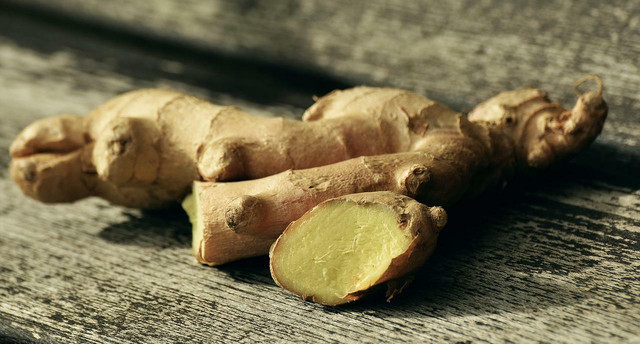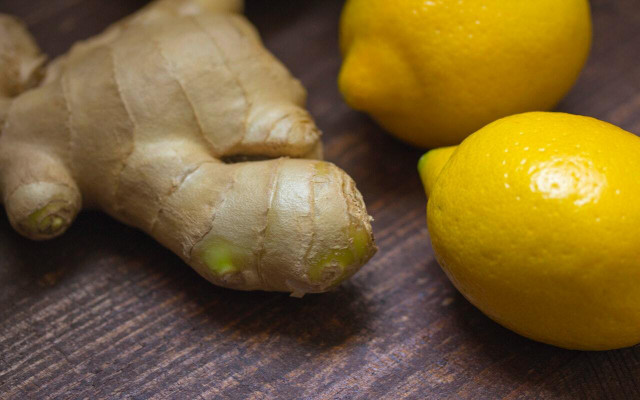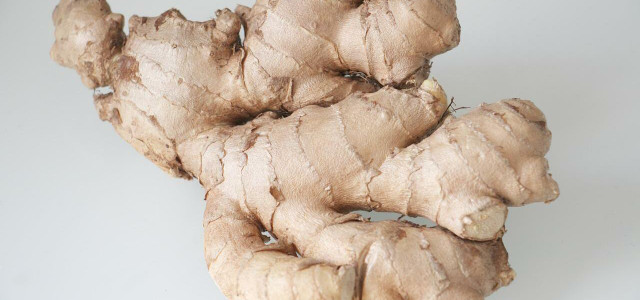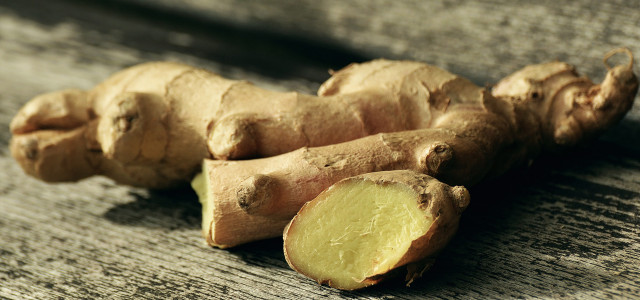Ginger root is spicy, healthy, and delicious, yet so much can be wasted if peeled incorrectly. But does ginger need to be peeled? Is it safe to eat ginger peel?
Ginger is a versatile ingredient that has been used throughout history as a medicinal remedy, to flavor food and drink, for various health benefits, and in more recent times as an antioxidant botanical in skin care and cosmetics. Light brown and gnarly on the outside, with a yellow fibrous and juicy flesh inside — it is often our instinct to peel ginger before use which can lead to food waste. To make candied ginger, for example, it is recommended to make it easier to chew. But is it always necessary?
Do I Need To Peel Ginger Root?

(Foto: CC0 / Pixabay / congerdesign)
The simple answer is no, you don’t have to peel ginger before using it, but you might prefer to depending on its intended use.
No harm will come to you from consuming the skin, and is said to have double the amount of beneficial polyphenols as the flesh. If you are cooking the root, eventually the skin will break down and you probably won’t even notice — plus you will save precious time by not peeling it. When preparing fresh ginger tea, you can either slice the root without peeling it, or you can grate the ginger directly into the pot or cup if you like it a little more spicy.
Ginger has been used in traditional medicine to ease joint pain, and could be added to a homemade body butter by simply blending the root whole without peeling it.
If you decide to keep the skin on, always wash it thoroughly with fresh water before consumption. Choosing organic ginger will also reduce the risk of potentially harmful pesticides entering your system
When Should I Peel Ginger?



(Foto: CC0 Public Domain / Pexels / Angele J )
As stated above, there really isn’t much need to peel your ginger, however sometimes it might be preferred for texture or aesthetic reasons. Adding fresh grated ginger to a white frosting for a carrot cake would look nicer without flecks of brown skin. The skin is also a little tougher and takes longer to break down than the flesh. Aromatics like ginger will have the best flavor when cooked for a shorter period of time. Adding grated or puréed ginger to a dish at the end stages of cooking could lead to a less-than-appealing texture in an otherwise creamy soup.
If you do choose to peel your ginger, make sure you do it the right way to reduce unnecessary food waste. Using a knife will almost inevitably take longer, increases the chance of cutting yourself and will remove a lot more of the spicy flesh along with the skin. The best way to peel ginger is to use a spoon. Your scraped ginger skin doesn’t have to go to waste either — you could freeze the peel and add a few teaspoons to your next batch of homemade broth or stock.
Read more:
- How to Store Ginger Root: 6 Ways to Keep Your Ginger Fresh for Longer
- Are There Benefits to Eating Raw Ginger?
- Spring Fever and Fatigue: Causes and Remedies
Do you like this post?








